
7th INTERNATIONAL CONFERENCE ON PEACE AND NONVIOLENT ACTION
7th ICPNA, Jaipur, November 10 to 14, 2008
3rd Plenary Session, 11.11.2008
Preface
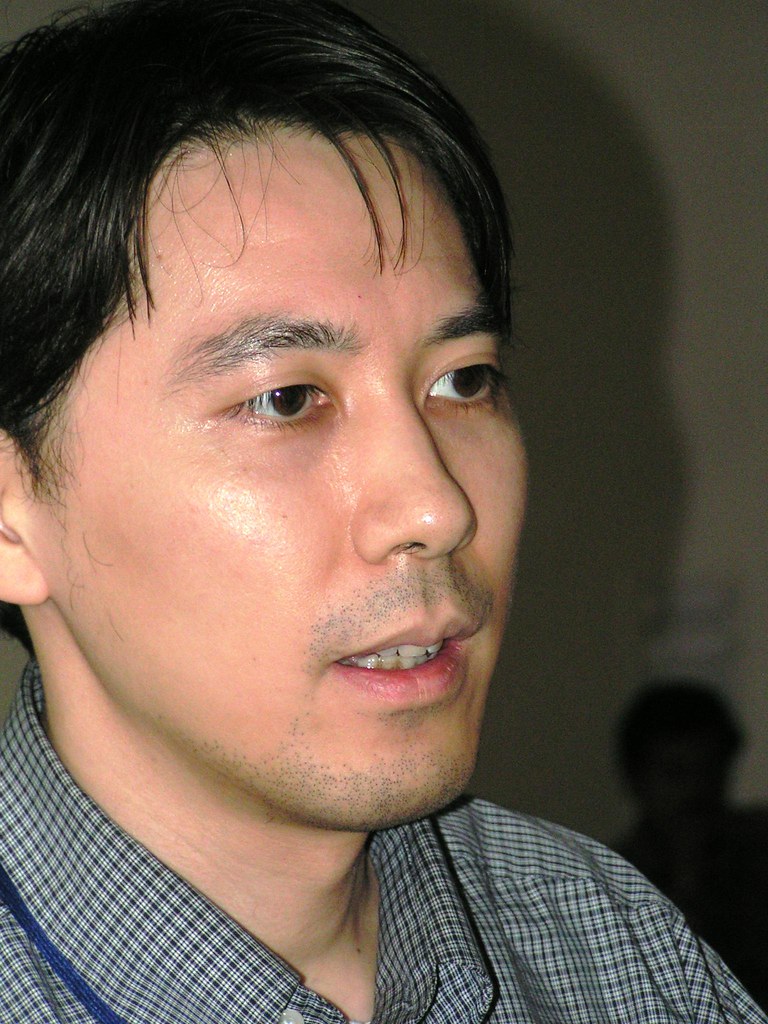
I would like to express my sincere thanks and appreciation for Anuvibha to host 7th ICPNA under the auspicious of His Holiness Acharya Mahapragya, and I also thank Anuvibha for constant effort for nonviolence activities.
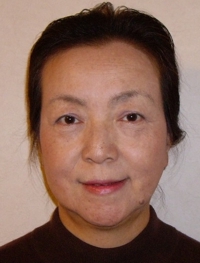 Last year, I participated in 6th ICPNA in Rajsamand with one of my friends, and I had many wonderful experiences there. One of them is a Jain style meditation. It is accompanied by chants. This chanting style meditation is old but inherited by relatively new Shintoism schools and similar to the one which Onisaburo Deguchi has once practiced. Although India and Japan are far from each other and have different historical background and natural environment, I found we can unite each other through the experience. And I felt we took one step forward to mutual understanding beyond our religions, languages or ethnicity.
Last year, I participated in 6th ICPNA in Rajsamand with one of my friends, and I had many wonderful experiences there. One of them is a Jain style meditation. It is accompanied by chants. This chanting style meditation is old but inherited by relatively new Shintoism schools and similar to the one which Onisaburo Deguchi has once practiced. Although India and Japan are far from each other and have different historical background and natural environment, I found we can unite each other through the experience. And I felt we took one step forward to mutual understanding beyond our religions, languages or ethnicity.
However, there was also a sad accident during the conference, which is the assassination of Benazir Bhutto, a former Pakistani Prime Minister. This was a very shocking moment for me because it shows the harsh reality for us. Even if I attend the conference, and try my best for realizing world peace and sustainable development, there still are many people who engage in terrorism and try to ruin our happiness.
There was another victim in Afghanistan this August. A Japanese NGO member, Kazuya Ito, who have worked for instructing Afghan people about agricultural development was kidnapped and murdered. Taliban claimed responsibility for the murder. I saw his father talking on the TV. He said he is proud of his son. Although Kazuya is dead, Peshawar-kai should keep their activity going to accomplish Kazuya’s will. When I heard the news, I realized we are in a critical situation where even volunteer activities based on goodwill become targets of terrorism. It is said Taliban is a Muslim sect but I wonder what kind of a group Taliban is, and what drives them to engage in terrorism. However, we can not solely accuse Taliban. It is obvious The U. S. also has violated the Geneva Convention by torturing war prisoners in Guantanamo.
As it is said in the invitation of the conference, environmental and ecological degradation, economic disparities, violation of human rights, poverty, hunger, and climate change is man made. I agree with Anuvibha on this recognition about today’s world. Then, how can we overcome this critical situation? I would like to discuss this through Onisaburo’s teaching.
Recognition of the Situation and Problem Determination
What makes people suffer the most is the biggest violence, which is war. I would like to introduce several verses from Onisaburo’s writing about war.
(From The Guide of the RoadVol.3 Upper Book “Epiphany” 13 May 1904)
41. |
Armies and war are all for landlords and capitalists. They impose great burdens to the poor. |
42. |
Many people are to be drafted to build armies and to wage war. They are to make a river of blood and a mountain of bones by using their bodies which they only have one to each. They have to pay more tax to their governments. |
43. |
There is nothing worse than war in the world, and nothing is less worth than armaments. Now all nations of the world issue bonds as much as 30 billion dollars to cover military expenditure. Just paying their interest is equivalent to average labor force of more than 3 and half million people each day. |
44. |
Millions of youth in the world serve in the military only to take murder lessons, and many people suffer during the evil lessons. There is nothing less worth than armaments. |
45. |
In every country of the world, all healthy youth are enlisted, and who work on the crop land, on the sea, and in the mountain are grey-haired toilers, women, and children. There wouldn’t be no time less happy than today. |
46. |
If the world is left as it is, people will go down together, and the world will collapse. |
47. |
In order to change this corrupted world to heaven on earth, heaven sent the Spirit of Mizu (Onisaburo himself) to the earth. |
83. |
The way to bring peace on earth is not through strong army but people’s faith toward God and their taking “the road of truth”. (ibid Vol. 1 Lower Book) |
These verses were written in1904, 104 years ago when Japanese people suffered in war. At that time in Japan, about 10 years had past since the Japanese-Sino War, and Japan was in the middle of war with Russia for control of Manchuria and Korean Peninsula (The Japanese-Russo War). As Onisaburo indicates, wars may be always waged for the interests of the riches, and the situations where humans repeat wars are just insane and absurd.
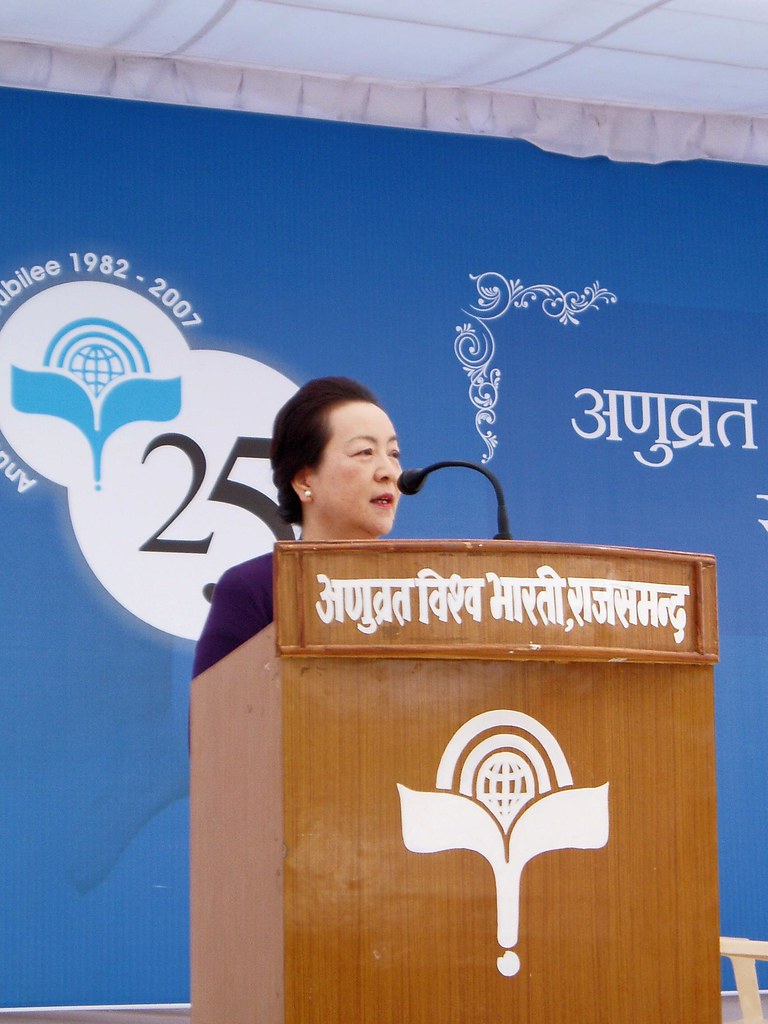
What do you think of the September 11 in New York City by the way? I think this is basically the same with wars of 100 years ago. Humans have built giant metropolis. On the other hand, we also obtained powerful weapons. Therefore, the damage would be tremendous once war breaks out. As reasons stated above, I would say war is the worst crime that humans could do and war is the biggest economic loss. War takes precious lives, and destroys crop lands and buildings. Just the monetary value lost in wars would be tremendous, but unfortunately we repeat it over and over again. Even though many people are trying to practice non-violence life style, once someone commits terrorism or wages war, those precious efforts end up in vain.
Related to the religious terrorism, how the participants here would think about relation between terrorism and religion? I think war and terrorism are not a religious issue. For example, there is the Israeli-Palestinian conflict. This is obviously a territorial dispute because, when we look back on the history, this problem rooted in so called British duplicity. This means three treaties British had made during World War I, which are the Hussein-McMahon Correspondence, the Balfour Declaration, and the Sykes-Picot Agreement. These treaties promise Arabs to be independent from Turkey, the Jewish people to build their own country, and France and Russia to control west Asia with Britain respectively. These treaties, of course, contradict each other, and it is very difficult to fulfill them all. There were people who lost their homes, lands and properties all of sudden. Although this area certainly has complicated historical background, there was outright human-rights violation in Palestine. Since then disputes, hatred, and cycle of revenge and retaliation have arisen between Israelis and Palestinians, and they happen to have different beliefs. After all, religions are used as a tool of propaganda by some fundamentalists there.
Recently, there was also a conflict in Georgia over an oil pipeline. This conflict is mostly a fight over energy, and so did the Gulf War and war in Iraq. Who suffer the most are always the innocent people living there. If someone says “war doesn’t occur by such a simple cause,” I would ask “if no one gains on wars, why do people think of starting war spending a lot of money and sacrificing people’s lives and properties?” At least, the world defense industry gains a lot of profits on wars. Politicians make up a good reason and justify it with plausible excuses. World politics, economy, and people’s living are closely related, and so are nations and regions. Politics and people’s living are inseparable.
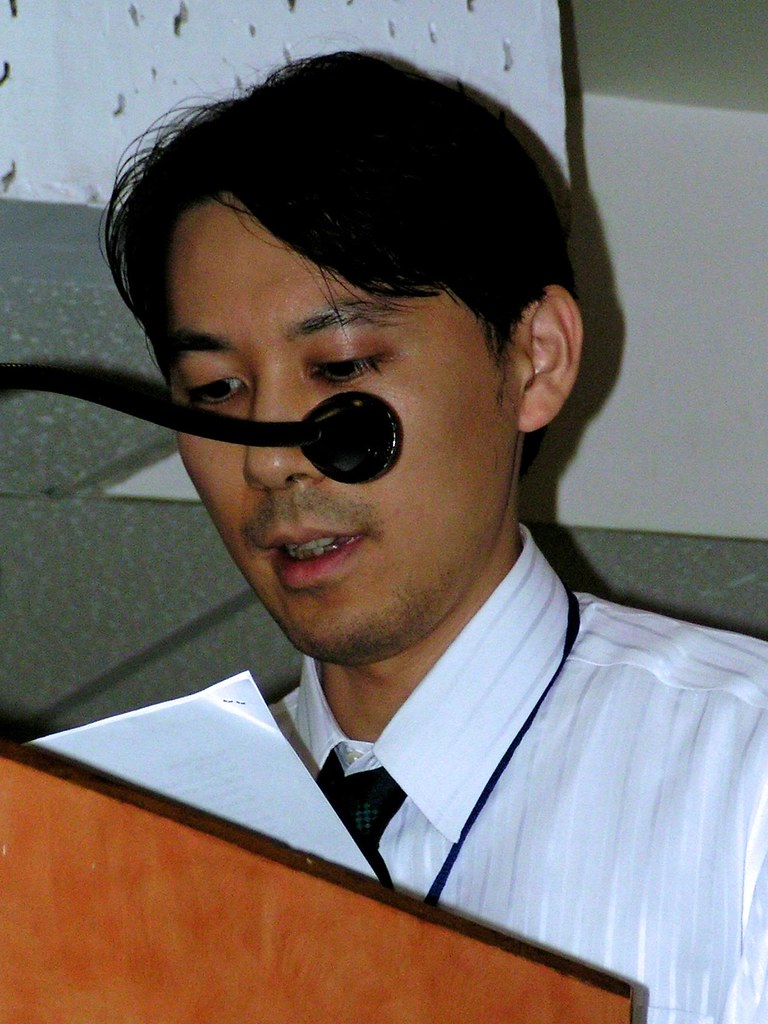 After losing in World War II with experience of atomic bombs in Hiroshima and Nagasaki, Japan established the pacifist Constitution as a pioneer of peace. The Constitution includes Article 9, which states abandonment of war as a mean of resolving disputes. I think this is wisdom of human beings. However, some nationalists are tying to undermine the Article now. So, responsible citizens are taking a stand against this movement, and I am a one of them who stand up to protect the Constitution. Although my influence on Japanese society may be small, this type of non-violence protest is important because I think it is hard for humans to keep a peaceful mind regardless of their physical conditions or to maintain noble spirit in the society filled with violence. We do have to take action to improve our societies, and I believe it is also a duty of enlightened people.
After losing in World War II with experience of atomic bombs in Hiroshima and Nagasaki, Japan established the pacifist Constitution as a pioneer of peace. The Constitution includes Article 9, which states abandonment of war as a mean of resolving disputes. I think this is wisdom of human beings. However, some nationalists are tying to undermine the Article now. So, responsible citizens are taking a stand against this movement, and I am a one of them who stand up to protect the Constitution. Although my influence on Japanese society may be small, this type of non-violence protest is important because I think it is hard for humans to keep a peaceful mind regardless of their physical conditions or to maintain noble spirit in the society filled with violence. We do have to take action to improve our societies, and I believe it is also a duty of enlightened people.
Let’s get back on Onisaburo’s quote again to see how he tells us to improve our societies. “The way to bring peace on earth is not through strong army but people’s faith toward God and their taking the road of truth”. This is very simple and may sound vague so I would like to restate this in view of the current situation. “In order to build a peaceful world and realize sustainable development, military buildup is harmful. For everyone to be happy, all citizens including politicians, businesspersons and religious leaders have to realize that there is a law of the universe or God, and there is a way of living based on natural law. The true world peace is realized when we follow Onisaburo’s teaching and cooperate with each other”. Onisaburo often used the term “the road of truth.” This means the way of living based on the values of “The Story of the Spiritual World,” a scripture dictated by himself. He said that no problems of the world would be solved without it. Therefore, it is also called “The Book of the Last Judgment.” I would like to introduce some of unique thoughts from the scripture. There are terms called “spirit-top-body-bottom,” “body-top-spirit-bottom,” and “power-top-body-spirit-bottom”. To be short, “spirit-top-body-bottom” is a thought that values our souls and minds first and next come material thing. “Body-top-spirit-bottom”, on the other hand, values this material world the most, and our souls and minds are considered to be dependent to our bodies. Thirdly, “power-top-body-spirit-bottom” is more like the law of the wild world where the strongest survive. Among them, Onisaburo suggests the “spirit-top-body-bottom” as a code of conduct.
Afterword
Lastly, I would like to send a message to all participants here because, unfortunately, I can not attend the conference this time. I would be in Italy to teach Ikebana (the Japanese flower arrangement) and to introduce Japanese culture there. I am glad to see people from Jainism and all participants from the world. I respect and feel sympathy for 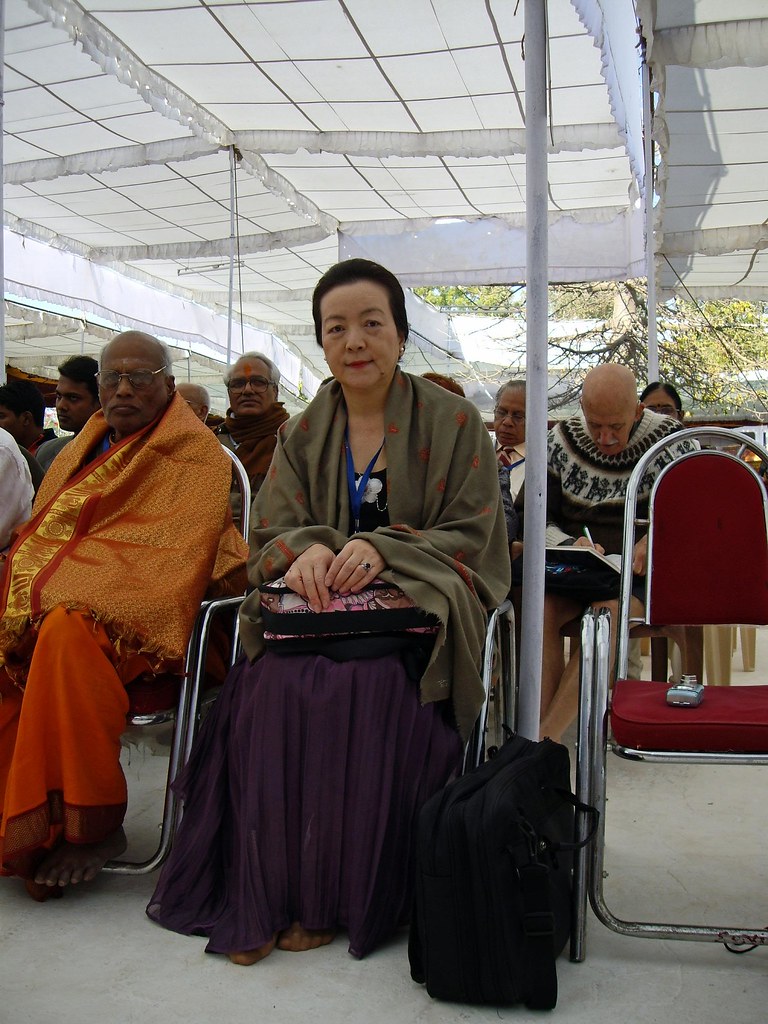 all of you who engaged in non-violence activities. For sustainable development, I agree on non-killing lifestyle. Onisaburo also recommends vegetarian lifestyle. All religions agree on such values as respecting each other, equality of lives, enrichment of soul, and freedom of our spirits. Although we have different religions, we can cooperate with each other to realize non-violent society. Here I would like to show my appreciation to Anuvibha’s effort again. Last year, I also found similarity between the Jain style chanting and the one of Onisaburo’s through meditation. I think Jain chanting give people relief, a peaceful mind, and braveness. [If I have a chance I would like to introduce a meditation accompany with Yakumo-koto, a two stringed musical instrument, as a cultural exchange in the future. I think this will help to understand each other.]
all of you who engaged in non-violence activities. For sustainable development, I agree on non-killing lifestyle. Onisaburo also recommends vegetarian lifestyle. All religions agree on such values as respecting each other, equality of lives, enrichment of soul, and freedom of our spirits. Although we have different religions, we can cooperate with each other to realize non-violent society. Here I would like to show my appreciation to Anuvibha’s effort again. Last year, I also found similarity between the Jain style chanting and the one of Onisaburo’s through meditation. I think Jain chanting give people relief, a peaceful mind, and braveness. [If I have a chance I would like to introduce a meditation accompany with Yakumo-koto, a two stringed musical instrument, as a cultural exchange in the future. I think this will help to understand each other.]